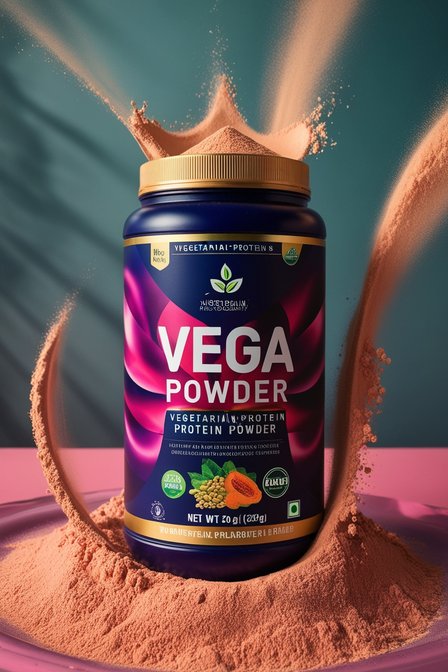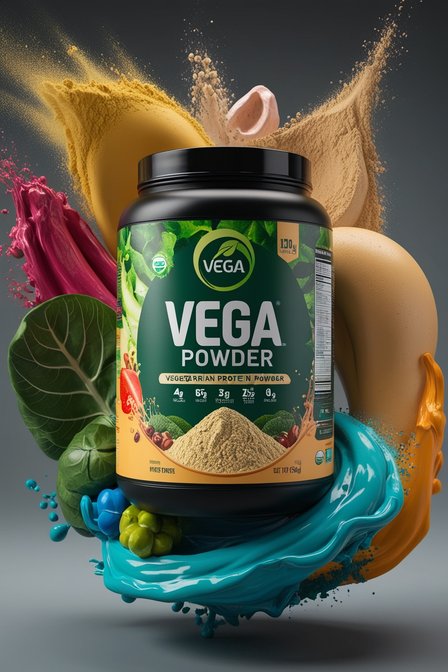Embracing Vegan Protein and Greens: A Path to Optimal Health
In an era where health consciousness is on the rise, the integration of vegan protein and greens into daily diets is gaining momentum. This shift reflects a broader recognition of the benefits associated with plant-based nutrition, emphasizing a lifestyle that supports well-being while aligning with ethical and environmental values. As more individuals transition to or explore plant-based diets, understanding the synergy between vegan proteins and greens can offer a path to achieving optimal health and vitality.
The Fundamentals of Vegan Protein
Vegan protein sources are derived from plants, encompassing a range of options from legumes and grains to nuts and seeds. Unlike animal-based proteins, which are often complete and rich in all essential amino acids, plant proteins can vary in their amino acid profiles. However, a well-balanced vegan diet can easily provide all essential amino acids through strategic food combinations.
Legumes, such as lentils, chickpeas, and black beans, are excellent sources of protein. They are also rich in fiber and essential nutrients, making them a cornerstone of a balanced vegan diet. Similarly, quinoa and amaranth stand out not only for their protein content but also for their status as complete proteins, providing all nine essential amino acids in sufficient quantities. Nuts and seeds, such as chia seeds, flaxseeds, and hemp seeds, contribute valuable proteins along with healthy fats that support heart health.
To achieve a balanced intake of essential amino acids, it is beneficial to combine different plant-based proteins. For instance, pairing beans with rice or nuts with seeds can ensure that the body receives a comprehensive profile of amino acids needed for optimal function. This approach underscores the flexibility and creativity inherent in plant-based nutrition, allowing individuals to enjoy a diverse and satisfying range of foods.
The Role of Greens in Plant-Based Diets
Greens, including spinach, kale, and broccoli, are celebrated for their nutrient density and health benefits. These vegetables are packed with vitamins, minerals, and antioxidants that play a crucial role in maintaining overall health. Leafy greens, in particular, are renowned for their high levels of vitamin K, which is essential for bone health and proper blood clotting. Additionally, greens provide an abundance of folate, which supports cell division and is particularly important for pregnant women.
Beyond their vitamin content, greens are rich in fiber, which aids in digestion and promotes a feeling of fullness. This is especially beneficial for those managing their weight or seeking to improve digestive health. The fiber in greens also supports the growth of beneficial gut bacteria, contributing to a balanced microbiome and enhanced overall health.
Incorporating a variety of greens into the diet ensures that individuals receive a broad spectrum of nutrients. For example, while spinach offers high levels of iron and magnesium, kale provides an excellent source of calcium. Broccoli, with its rich vitamin C content, complements the nutritional profile of other greens, contributing to a well-rounded diet.
Combining Vegan Protein and Greens for Optimal Health
The integration of vegan protein and greens creates a powerful combination that supports various aspects of health. Proteins are vital for muscle repair, immune function, and overall cellular health, while greens offer a broad array of vitamins and minerals that enhance these benefits. Together, they form a comprehensive nutritional foundation that can boost energy levels, improve cognitive function, and support long-term health.
One of the key advantages of combining vegan protein with greens is the synergistic effect on nutrient absorption. For instance, vitamin C, abundant in many leafy greens, enhances the absorption of non-heme iron found in plant-based sources. This is particularly beneficial for individuals following a vegan diet, as iron from plant sources is less readily absorbed compared to animal-based iron.
Furthermore, the fiber from greens complements the protein intake by promoting digestive health and ensuring that nutrients are efficiently processed by the body. This combination supports sustained energy levels and overall well-being, making it easier to adhere to a balanced and nutritious diet.
Practical Tips for Incorporating Vegan Protein and Greens
Incorporating vegan protein and greens into daily meals can be both enjoyable and straightforward. Simple strategies can help maximize the benefits of these nutritional powerhouses while maintaining variety and flavor in your diet.
Start by incorporating a range of greens into your meals, whether through salads, smoothies, or cooked dishes. Experiment with different varieties to discover which ones you enjoy most and which offer the best complement to your preferred protein sources. For instance, a spinach and lentil salad can be a satisfying and nutrient-dense meal, while a kale and quinoa bowl provides a hearty option for lunch or dinner.
To boost protein intake, consider adding plant-based protein powders to smoothies or baking recipes. These powders can be derived from sources such as peas, hemp, or brown rice, and can enhance the protein content of your meals without compromising flavor. Additionally, incorporating beans, tofu, or tempeh into stir-fries or soups can provide a substantial protein boost while integrating well with various greens.
Meal planning and preparation can also play a crucial role in maintaining a balanced diet. Preparing large batches of protein-rich foods and greens in advance can make it easier to assemble nutritious meals throughout the week. For example, cooking a large pot of quinoa or lentils and pairing it with a variety of greens can provide a convenient base for multiple meals.
The Environmental and Ethical Impact of Vegan Nutrition
Adopting a diet that emphasizes vegan protein and greens not only benefits individual health but also contributes positively to the environment and animal welfare. Plant-based diets have been shown to have a lower environmental footprint compared to animal-based diets, reducing greenhouse gas emissions, water usage, and land degradation.
Furthermore, choosing plant-based proteins and greens supports ethical considerations by minimizing reliance on animal agriculture. This shift aligns with values of compassion and sustainability, contributing to a more humane and eco-friendly food system.
By focusing on vegan protein and greens, individuals can make a meaningful impact on both their health and the planet. This approach supports a holistic lifestyle that embraces well-being, environmental stewardship, and ethical choices.
Conclusion
The integration of vegan protein and greens into daily nutrition offers a comprehensive approach to achieving optimal health. By understanding the benefits of plant-based proteins and the nutritional richness of greens, individuals can create balanced and satisfying meals that support overall well-being. Whether through diverse meal options, practical tips for incorporating these ingredients, or consideration of their broader impact, embracing vegan protein and greens can lead to a healthier, more sustainable lifestyle. As the demand for plant-based nutrition continues to grow, exploring these dietary choices offers a promising path to enhancing personal health and contributing to a more compassionate and sustainable world.



